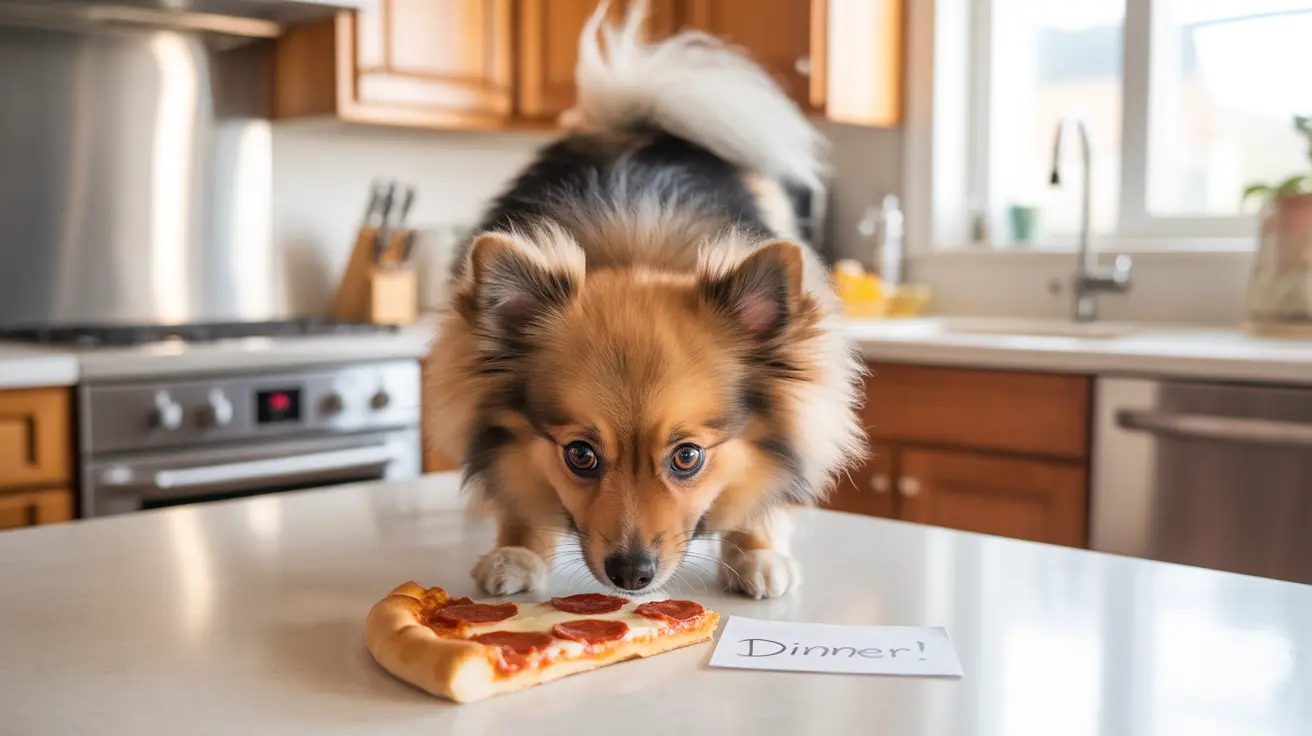If you've ever enjoyed a slice of pizza, you've probably noticed your dog's hopeful eyes fixed on that tempting pepperoni topping. But before you share this spicy treat with your furry friend, it's crucial to understand why veterinarians and pet nutrition experts strongly advise against feeding pepperoni to dogs.
While dogs can technically eat pepperoni, they absolutely shouldn't. This popular pizza topping and snack food contains several ingredients that can be harmful or even toxic to our canine companions, potentially leading to serious health complications.
The Dangers of Pepperoni for Dogs
Pepperoni poses multiple health risks to dogs due to its ingredients and processing methods. Let's explore why this seemingly innocent treat can be so problematic for our four-legged friends.
High Fat Content and Pancreatitis Risk
The excessive fat content in pepperoni can trigger pancreatitis in dogs, a painful and potentially life-threatening inflammation of the pancreas. Even small amounts can cause digestive upset, while regular consumption significantly increases the risk of developing chronic health issues.
Toxic Seasonings and Spices
Pepperoni contains several seasonings that are toxic to dogs, including:
- Garlic and onion powder (can cause anemia)
- Red pepper flakes (digestive irritation)
- Black pepper (stomach upset)
- Paprika (gastrointestinal distress)
Dangerous Salt Levels
The high sodium content in pepperoni can lead to salt poisoning in dogs, particularly in smaller breeds. Symptoms of salt toxicity include:
- Excessive thirst and urination
- Vomiting and diarrhea
- Tremors or seizures
- Potential kidney damage
Immediate Health Risks
When dogs consume pepperoni, they may experience immediate adverse reactions including:
- Severe digestive upset
- Abdominal pain and bloating
- Dehydration
- Lethargy and weakness
Long-term Health Concerns
Regular exposure to pepperoni can lead to chronic health issues in dogs:
- Obesity and weight management problems
- Heart disease
- Diabetes
- Chronic pancreatitis
- Kidney problems
What to Do If Your Dog Eats Pepperoni
If your dog manages to sneak some pepperoni, take these steps:
- Determine how much they consumed
- Monitor for concerning symptoms
- Contact your veterinarian if you notice any unusual behavior
- Have emergency vet contact information ready
Safe Alternatives to Pepperoni
Instead of pepperoni, consider these dog-safe treats:
- Small pieces of plain, cooked chicken
- Low-fat, dog-safe cheese in moderation
- Commercial dog treats formulated for canine health
- Fresh vegetables like carrots or green beans
Frequently Asked Questions
Can dogs eat pepperoni safely?
No, dogs should never eat pepperoni. It contains toxic ingredients like garlic and onion powder, excessive salt, and harmful fats that can cause serious health problems.
Why is pepperoni bad for dogs?
Pepperoni is bad for dogs because it contains toxic seasonings, dangerous levels of salt and fat, and processed ingredients that can cause pancreatitis, salt poisoning, and other severe health issues.
What happens if my dog eats pepperoni by accident?
Monitor your dog for symptoms like vomiting, diarrhea, excessive thirst, or lethargy. If you notice any concerning symptoms or your dog ate a large amount, contact your veterinarian immediately.
How can I prevent my dog from eating pepperoni?
Keep pepperoni and pizza out of your dog's reach, train them not to beg at the table, and ensure all family members know not to share this dangerous treat with your pet.
What are safe alternatives to pepperoni for rewarding my dog?
Use dog-specific treats, small pieces of plain cooked meat, or dog-safe fruits and vegetables as alternatives. Always introduce new treats gradually and in moderation.
While it might be tempting to share pepperoni with your dog, the risks far outweigh any momentary enjoyment. Stick to treats specifically designed for dogs, and always consult with your veterinarian about safe food choices for your furry friend.






